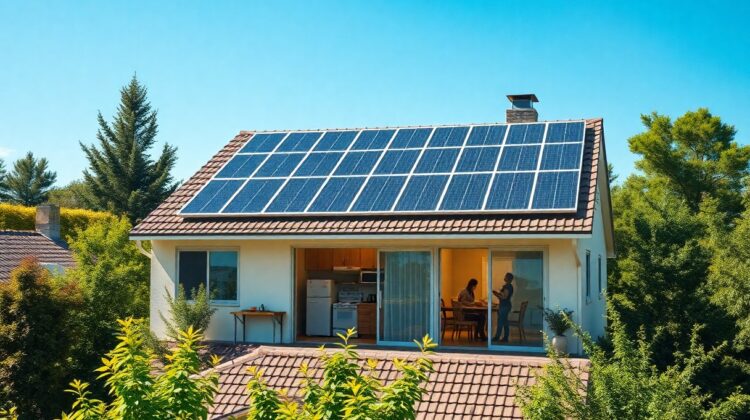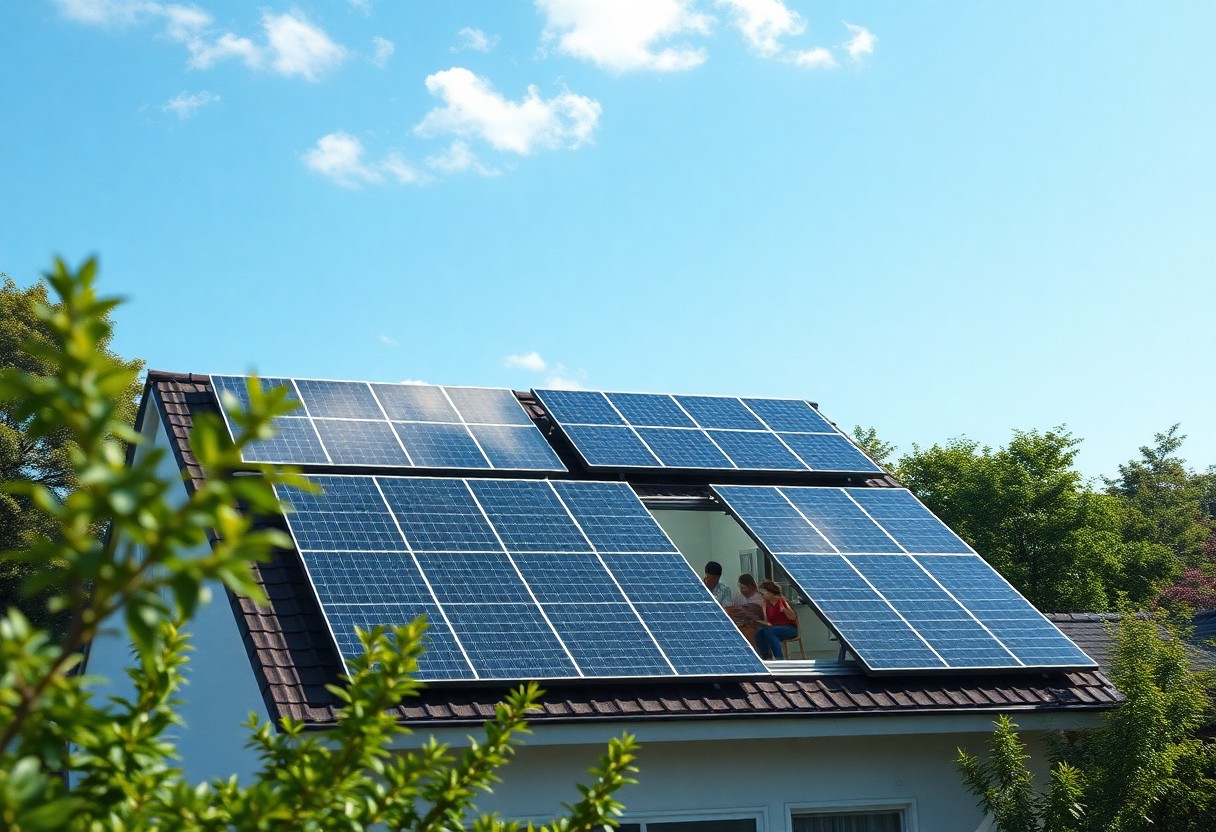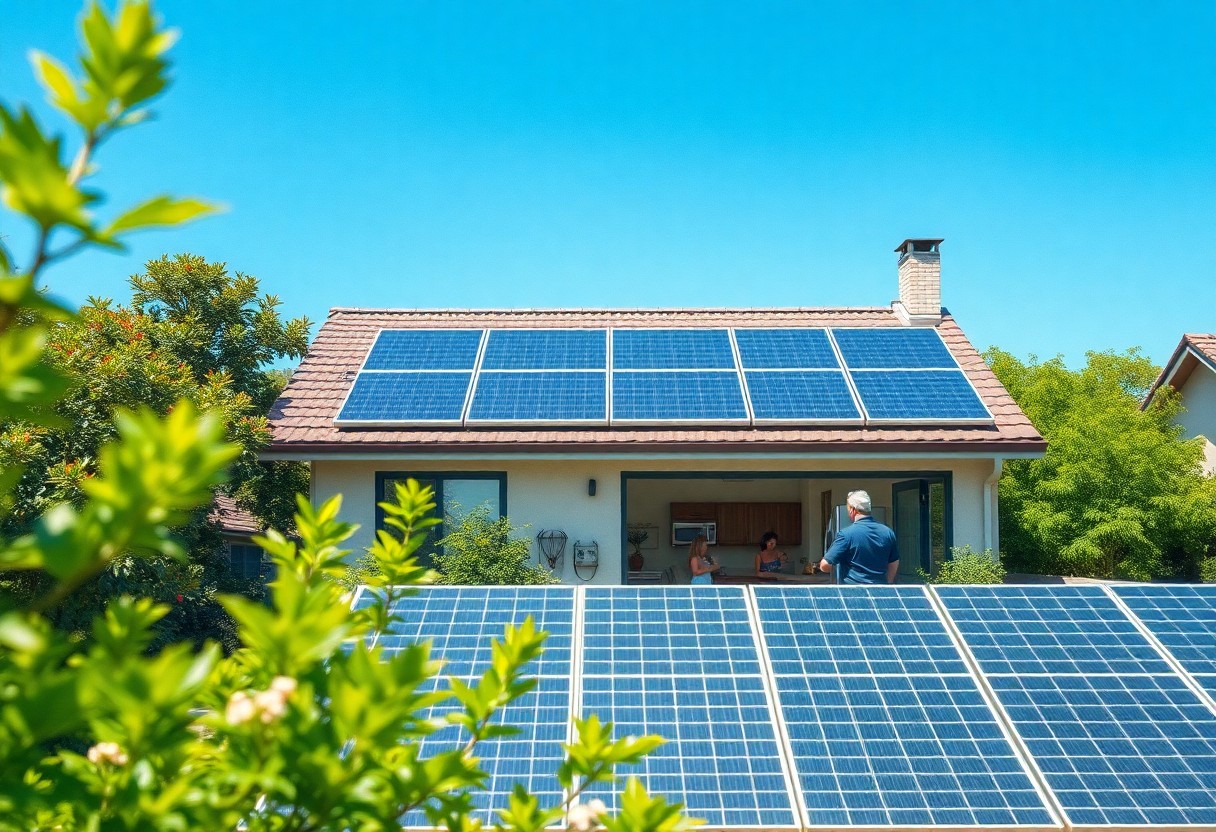
Table of Contents
Your solar investment can yield significant savings and sustainability benefits when optimized effectively. By understanding how to maximize your solar system’s efficiency, you can enhance energy production, reduce costs, and minimize your carbon footprint. In this post, you will discover practical tips and strategies that can help you make the most out of your solar installation, ensuring that your investment continues to pay off for years to come.
Understanding Solar Energy
While solar energy harnesses the sun’s power to generate electricity, it presents an opportunity for you to tap into a renewable resource that can lower your energy bills and reduce your carbon footprint. By understanding its fundamentals, you can make informed decisions about your solar investment and optimize energy use in your home or business.
How Solar Panels Work
Any solar panel works by converting sunlight into electricity using photovoltaic cells. When sunlight hits these cells, it excites electrons, generating a flow of direct current (DC) electricity. An inverter then converts this DC electricity into alternating current (AC) for use in your home. The efficiency of this process is vital for maximizing your energy output and consequently, your savings.
Types of Solar Systems
Below are the primary types of solar systems you can consider for your energy needs:
| Type of System | Description |
| Grid-Tied | Connected to the local electricity grid; allows for excess energy to be sold back. |
| Off-Grid | Independent system that requires battery storage; ideal for remote locations. |
| Hybrid | Combines grid-tied and off-grid features; provides flexibility for various energy needs. |
| Community Solar | Allows multiple participants to benefit from a shared solar array; good for renters. |
| Solar Water Heating | Uses solar energy to heat water for residential or commercial use. |
It is necessary to choose the right solar system for your specific needs. The main types of systems include:
- Grid-Tied: Great for saving on costs and utilizing the grid during lower production rates.
- Off-Grid: Best for those looking for energy independence.
- Hybrid: Offers versatility and backup options.
- Community Solar: A perfect choice for those unable to install solar panels on their property.
- Solar Water Heating: Efficient for heating water without needing electricity.
Thou have plenty of choices, cater your system to suit your lifestyle and budget for optimal energy efficiency and savings.
Assessing Energy Needs
Even before installing solar panels, understanding your energy needs is vital for maximizing your investment. Start by evaluating your electricity consumption patterns and identifying peak usage times. This way, you can tailor your solar system to meet your specific requirements. For more insights, check out Practical Tips for Maximizing Your Solar Energy Output.
Calculating Your Energy Consumption
Above all, take time to analyze your past utility bills to determine your average monthly and annual energy consumption. By doing this, you can establish a baseline that will guide you in choosing the right solar system size, ensuring you generate enough energy to cover your needs.
Evaluating Solar Potential at Your Location
By assessing the solar potential of your location, you can determine how much sunlight your property receives throughout the year. This information is vital for optimizing the performance of your solar installation.
Solar potential is influenced by factors such as geographic location, local weather patterns, and potential shading from trees or buildings. Conducting a thorough site assessment will help you identify the best areas for solar panel installation and ensure maximum energy generation. Tools like solar pathfinders or software can assist you in analyzing solar exposure, allowing you to make informed decisions regarding your solar investment.

Choosing the Right Solar System
Some factors to consider when selecting a solar system include your energy consumption, roof space, budget, and available incentives. Assessing these elements will help you determine the best system for your unique situation. Here are key factors to keep in mind:
Factors to Consider
- Energy needs
- Roof orientation and shading
- Initial investment and financing options
- Local regulations and permits
Thou can maximize your investment by carefully evaluating these considerations.
Comparing Different Solar Solutions
At this stage, you should compare various solar solutions to find the one that suits your lifestyle and energy requirements best.
Key Features
| Solar Solution | Key Features |
|---|---|
| Monocrystalline Panels | High efficiency, space-saving |
| Polycrystalline Panels | Cost-effective, good performance |
| Thin-Film Panels | Lightweight, flexible installation |
And understanding the differences will facilitate informed decisions. Evaluate which solar solution aligns with your energy goals. Compare the various systems’ efficiency, lifespan, and warranties. The table below provides a deeper investigate performance metrics and potential maintenance costs.
Performance Metrics
| System Type | Efficiency Rate (%) |
|---|---|
| Monocrystalline | 15-22 |
| Polycrystalline | 13-16 |
| Thin-Film | 10-12 |
If you are looking for solar panels with the highest efficiency rating, check out our post on the best solar panels for cloudy days.

Installation Best Practices
Now that you’ve decided to invest in solar energy, it’s crucial to focus on installation best practices to maximize your system’s efficiency and longevity. Proper installation not only optimizes performance but also ensures safety and compliance with local regulations. A well-executed installation can significantly enhance the return on your solar investment, making it vital to follow best practices throughout the process.
Importance of Professional Installation
Any solar energy system should be installed by professionals who understand the intricacies of the technology and local building codes. Their expertise will ensure that your solar panels are positioned correctly for maximum sun exposure and efficiency. Hiring qualified technicians also minimizes the risk of installation errors, providing peace of mind that your investment is secure.
Common Installation Pitfalls to Avoid
Among the many aspects to consider when installing solar panels, certain pitfalls can undermine your system’s efficiency. Failing to assess roof condition, placing panels in shaded areas, or improper wiring can lead to subpar performance. Additionally, overlooking local regulations may result in costly fines or the need for reinstallation.
Importance of avoiding common installation pitfalls cannot be overstated. Ensuring that your roof is in great shape prevents damage after installation, while optimizing panel placement will harness the most energy. Take time to research local regulations and get all necessary permits before installation. By being informed and attentive during this phase, you can significantly enhance your system’s efficiency and reliability, ultimately protecting your solar investment.
Optimizing Energy Efficiency
After installing your solar panels, maximizing your investment requires a focus on energy efficiency. Simple adjustments in your home can significantly enhance your solar performance. To learn more about effective strategies to Maximize Solar Savings & Efficiency: How to Get Most Out …, consider implementing the following techniques.
Energy-Saving Tips for Homeowners
Along with optimizing your solar system, you can improve your energy efficiency with these simple tips:
- Seal drafts and gaps around windows and doors.
- Use energy-efficient appliances and LED lighting.
- Adjust your thermostat when you are not home.
- Utilize natural light during the day.
After implementing these changes, you will see the benefits of your solar investment increase.
Smart Home Technologies
Technologies play an imperative role in enhancing the energy efficiency of your home. By integrating smart home solutions, you can easily monitor and control your energy usage.
For instance, smart thermostats allow you to adjust your home’s temperature from anywhere, ensuring optimal heating and cooling when needed. Smart plugs, meanwhile, can help schedule and manage your devices to minimize energy waste. Combining these innovations with your solar setup empowers you to fully utilize your system, resulting in significant long-term savings.
Monitoring and Maintenance
Many homeowners overlook the importance of monitoring and maintaining their solar systems. Consistent checks on your solar panel performance and efficiency can help you identify issues early, ensuring you get the most out of your investment. By staying proactive, you can avoid costly repairs and extend the lifespan of your system, making sure it continues to meet your energy needs over time.
Keeping Track of Energy Production
One effective way to maximize your solar investment is by regularly monitoring your energy production. Use a solar monitoring system to track how much energy your panels generate, allowing you to compare it with your energy needs. This way, you can identify patterns, spot inconsistencies, and even adjust your energy habits for better efficiency.
Before you can enjoy the full benefits of your solar energy system, establish a routine maintenance schedule. Regular cleaning of your panels and system checks can help maintain their output. Ensure that all connections are secure and that there are no obstructions, such as debris or overgrown vegetation, that could limit sunlight exposure.
Due to the importance of preventative measures, scheduling professional inspections at least once a year can also be beneficial. Technicians can assess the entire system for functionality, pinpointing potential issues that may not be immediately visible. Additionally, keeping records of these checks and any maintenance performed can help you track your system’s performance over time, providing valuable insights into its efficiency and lifespan.
Final Words
With these considerations in mind, you can effectively maximize your solar investment and enhance energy efficiency. By monitoring your consumption, optimizing appliance use, and exploring energy storage options, you ensure that your solar system works at its best for you. Regular maintenance and reviewing your energy habits will not only increase your savings but also contribute to a more sustainable lifestyle. Embrace these tips to make the most of your solar energy and enjoy the long-term benefits it offers.
